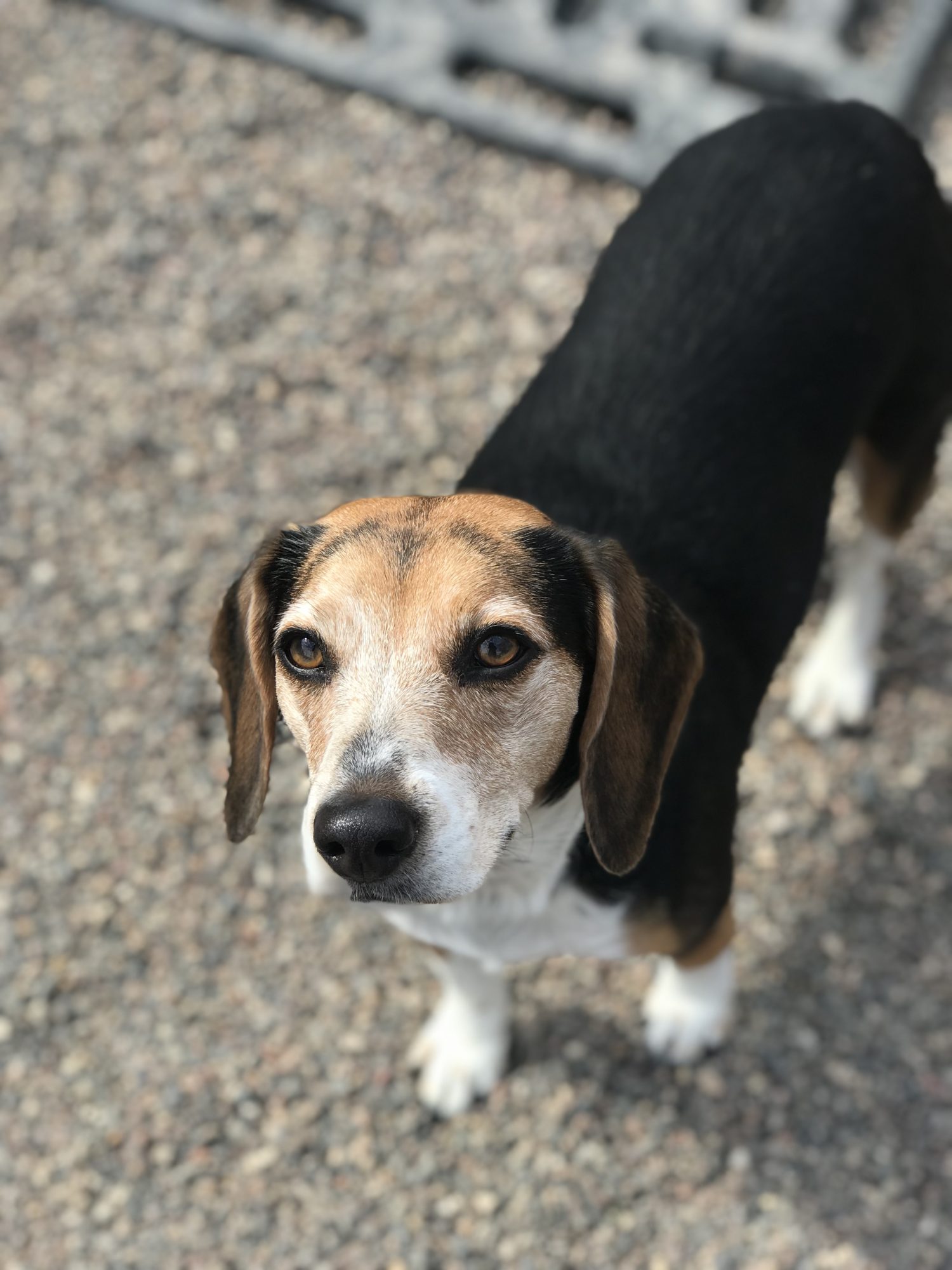Helpful Tips To Prevent Pet Weight Gain
By Dr. Maria Krenz, DVM – ZimmVet-763-856-4848

Prevent Pet Weight Gain This Winter
Long Minnesota winters can be hard on people, and their furry pet companions. Multiple factors lead to pet weight gain in the winter. Pets that gain weight over the winter often have more problems with arthritis, and they are at higher risk for diabetes, heart disease and many other ailments. In addition, older pets do not usually lose these extra pounds in the summer. This can create an endless cycle of weight gain every year. Preventing weight gain and obesity in your pet can add years to their lifespan, creating more time to spend with your special friend.
Measure your Pet’s Food
Pet owners need to take control of their pet’s calorie intake. Most pets, if left to eat as they wish, will overeat and become obese, even as early as 6 months of age. Pet food bag give a guideline of how much to feed your pet. The key is to measure the food for the weight your pet should be, or its ideal weight. Your veterinarian can help you determine the ideal body weight and calculate the appropriate calories for your pet. Outdoor only dogs, depending on their breed, activity level and housing, may need slightly more food as the temperature drops below zero. However, this is usually only a 7.5% increase in calories for each 10 degree drop in temperature, which your veterinarian can best determine.
Treats
Many pet owners are feeding the correct amount of pet food, but their pet is getting too many calories from other sources. It is common, especially with small dogs, for owners to be giving 2-times or more of their daily calorie needs in treats. People food, dog treats, rawhide bones, dental bones or anything a pet ingests, counts toward their daily calorie allowance. Your veterinarian can help you calculate how many calories per day in treats your pet can have, which is normally no more than 10% of their daily calories.
Inactivity
Decrease in a pet’s activity during the cold winter months often correlates with their owner’s change in activity. During nice days, walks are good to get your pet moving. If space is available inside, fetch games with toys or food kibble pieces can help burn a few calories. Pet daycare is a great way to exercise your pet. Pets that are obese may need to start off with daycare for only a few short hours and gradually build to a full day. If your pet’s activity decreases you will need to decrease the calories fed to prevent weight gain.
Other Tools
Your veterinarian can help you formulate a weight management or loss plan for your individual pet. Other treatments may include blood testing for diseases such as hypothyroidism and prescription weight loss diets. Adjusting the food intake of your pet can be a challenge if you have multiple pets. However, your veterinarian can help you work through problems to create a solution for a healthy weight for your pet.
Disclaimer: This written content is meant to be educational and is not medical advice. Always consult a veterinarian about medical advice for your pet.


